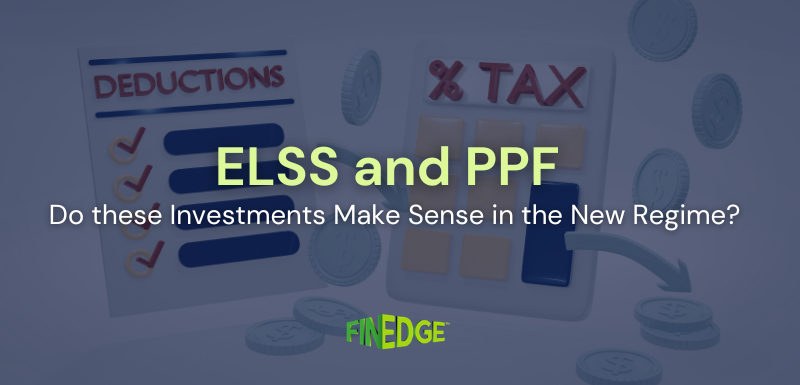Where Should You Invest if the BJP Government Comes to Power?

In the State Assembly elections concluded in November 2023, the BJP got a decisive majority in Madhya Pradesh, Rajasthan and Chhattisgarh. The party retained Madhya Pradesh while it wrested Chhattisgarh and Rajasthan from the Congress party.
Also, Prime Minister Narendra Modi is one of India's most popular leaders and BJP's PM candidate for the 2024 union elections. Most opinion polls expect the BJP and the NDA coalition to get a clear majority in the 2024 union elections. So, where should you invest if the BJP government comes to power? Let us discuss.
Sectors to Consider for Investment
The BJP Government has Focused On Some Key sectors in the last Two Terms and Is Expected to Continue Focusing on Them in Its Third Term. Some of Them Include the Following.
1) Infrastructure
The Government intends to make India a developed economy by 2047. For that to happen, good infrastructure is the key requirement. The Government has been building infrastructure for the last few years through huge budgetary allocations towards capital expenditure.
In the last five years, the budgetary allocation towards capital expenditure has increased as follows.
| Fiscal Year | Capital Expenditure Allocation |
| 2020-21 | Rs. 4.3 lakh crore |
| 2021-22 | Rs. 5.9 lakh crore |
| 2022-23 | Rs. 7.4 lakh crore |
| 2023-24 | Rs. 9.5 lakh crore |
| 2024-25 | Rs. 11.11 lakh crore |
Source: Livemint
The Government stepped on the pedal for capital expenditure during the Covid pandemic. Since then, every year, the budget allocation has increased at a decent pace and more than doubled in the last five years. The capital expenditure allocation is spent towards building roads, airports, sea ports, railways, etc.
In Budget 2024-25, out of the Rs. 11.11 lakh crore capital expenditure allocation, Rs. 2.78 lakh crores have been earmarked for the development and maintenance of national highways.
As per an Economic Times report (dated 10th April 2024), the Ministry of Road Transport and Highways could release a plan to build 50,000 km of new expressways by 2037. The plan could be released in the first 100 days of the formation of the new Government. Apart from expressways, the Government has big plans for building national highways, rural roads, border roads, bridges, tunnels, and their maintenance.
The Road Transport Minister, Nitin Gadkari, has set a target of constructing more than 35 km of new roads per day in FY 2024-25. All these initiatives provide a big opportunity for listed companies in the road construction and maintenance category.
In Budget 2024-25, the railways have got an allocation of Rs. 2.55 lakh crores. The money will be used for building new and redeveloping existing railway stations, laying new and upgrading existing railway lines, procuring wagons, expanding high-speed trains like Vande Bharat, building new and expanding existing metro networks, etc. These initiatives will benefit listed companies that manufacture wagons, build infrastructure like railway stations, provide materials for laying railway lines, etc.
In Budget 2024, the Finance Minister announced the number of airports has doubled to 149, with the addition of 70 airports in the last ten years. The Government aims to have 200 airports operational in the coming years. The number of new air routes under the UDAN program has increased to 517, carrying 1.3 crore passengers. These measures will benefit listed companies that build and manage airports, run airlines, etc.
The infrastructure budgetary allocations will continue if the current BJP Government returns to power. Hence, you may consider investing in companies involved in building and maintaining infrastructure like roads, railways, airports, seaports, etc.
2) Defence
In the last few years, the Government has focused on strengthening the defence sector. They have taken initiatives like modernising the Armed Forces, infrastructure development, import substitution, Make in India and Atmanirbhar Bharat programs, etc. In Budget 2024, the defence sector got an allocation of Rs. 6.21 lakh crores.
The above initiatives and budgetary allocation have led to a lot of orders from the Armed Forces to listed PSUs and private companies engaged in the defence sector. Some companies are sitting on huge order books that will take a few years to execute. Also, the deal pipeline for these companies is strong, with a regular inflow of new orders expected.
If the current BJP Government returns to power, the above initiatives to strengthen the defence sector will continue. You may invest in companies manufacturing and servicing defence equipment to benefit from this theme.
3) Renewable Energy
The Government has set a target of installing 500 GW of non-fossil fuel capacity by 2030. The non-fossil sources of energy include solar, wind, hydro, biomass, etc. It is the world’s largest expansion plan in renewable energy. As of April 2024, the non-fossil fuel capacity stands at 199.85 GW.
In its third term, the BJP Government will continue implementing its program to achieve an installed capacity of 500 GW of non-fossil fuel capacity by 2030. It will benefit listed companies involved in:
a) Building and running power plants
b) Transmission of power from power plants to consumers
c) Distribution of power to consumers
d) Supplying equipment for building power plants
e) Smart meters production, installation, and servicing, etc.
4) Electric Vehicles (EV's)
In the earlier section, we saw how the Government plans to transition from thermal energy to renewable energy. Renewable energy will power the Government’s next goal of transitioning from conventional vehicles to electric vehicles (EVs).
The NITI Aayog, a part of the Government, has 2030 targets for EV sales penetration of:
a) 70% for all commercial cars,
b) 30% for private cars,
c) 40% for buses and
d) 80% for two and three-wheelers
The above is a huge target with benefits accruing to listed companies in the automobile industry. In their third term, the BJP Government will push forward for the penetration of EVs. It will benefit companies that:
a) Manufacture EVs
b) Supply EV parts
c) Set up and manage charging infrastructure
5) Manufacturing
As per the National Manufacturing Policy, the Government's objective is to enhance the share of manufacturing in GDP to 25% within a decade. To encourage domestic manufacturing, the Government has introduced the Production Linked Incentive (PLI) schemes, developed infrastructure, transport and logistics, power and other resources, reduction in corporate tax rate, increased FDI limits, improved ease of doing business, and other schemes.
The PLI scheme for mobile phones has seen good results. The mobile phone production has increased 18.5 times from 2014-15 to Rs. 3.5 lakh crores in 2022-23. Similarly, the exports of mobile phones have grown 57.5 times from 2014-15 to Rs. 90,000 crores in 2022-23. For some other industries like electronic hardware, consumer durables, etc. the results are yet to be seen as the PLI schemes have been recently announced.
In its third term, the BJP Government will continue its push for domestic manufacturing and make India a manufacturing hub. It will serve the two-fold purpose of reducing imports and promoting exports. As a result of the Government's encouraging domestic manufacturing, some listed domestic manufacturing companies have started emerging in a big way. More companies are expected to get listed in this space in the coming days. Thus, you may consider investing in manufacturing companies when the BJP Government comes to power post 2024 elections.
We discussed five sectors/themes you may consider investing in during the BJP Government's third term. However, please note, along with these five sectors/themes, the Government has focus on others also. New additional focus areas may also emerge once the new Government is in place. You may consider investing in them as and when the Government outlines its plans.
Develop a Holistic Investment Portfolio
We have discussed the various sectors/themes you can consider investing in when the BJP Government returns to power in its third term. However, note that these are sectoral or thematic investments and are vulnerable to economic/business cycles. Hence, you should develop a holistic portfolio. At a broad level, you should follow appropriate asset allocation with investments in equity, fixed-income, gold, etc. Within equity, you may allocate the majority of investments to large, mid, small, and flexi-cap mutual fund schemes. Once you achieve asset allocation and investments across broad market capitalisation equity funds, you may make some allocation to sectoral and thematic funds.
Your Investing Experts
Relevant Articles
Should You Continue Investing in ELSS and PPF in the New Tax Regime?
With Section 80C deductions removed under the new tax regime, ELSS and PPF must now stand on their investment merit. The decision is no longer about tax savings alone, it is about suitability, liquidity, and long-term goals.
When Is the Right Time to Start Investing for Your Goals?
When is the right time to start investing for your goals? Many believe the answer depends on market stability, income comfort, or economic certainty. In reality, the right time is when your goals are clear and you are prepared to act with discipline. Wealth is rarely created by waiting. It is built through consistent participation guided by a defined investment process.
How to Adjust Your Investments After a Salary Raise
A salary hike is more than a pay revision, it is an opportunity to realign your financial direction. The smartest response to higher income is not immediate lifestyle expansion, but a structured review of your goals, debt position, and investment contributions. When handled thoughtfully, each raise can accelerate wealth creation rather than simply increase monthly expenses.


.png)
